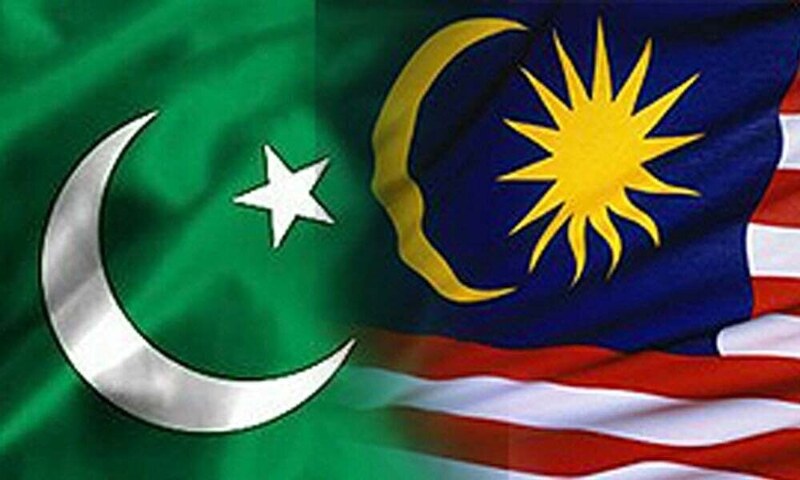KARACHI: The relationship between Pakistan and Malaysia is a strong and rooted in shared history, faith and mutual respect since inception, said M Bashir Janmohammad, Chairman Pakistan-Malaysia Business Council Federation of Pakistan Chambers of Commerce and Industry (FPCCI).
He said over the decades, this strategic collaboration has evolved into a multifaceted engagement encompassing trade, investment, education, cultural exchange, and tourism. Both countries, as members of the Commonwealth and the Organisation of Islamic Cooperation (OIC) continue to explore new avenues for cooperation that leverage their respective strengths and strategic regional positions.
He stressed on further enhancing trade ties and collaboration through various initiatives, including promoting bilateral trade, encouraging joint ventures, fostering investment, and organising the exchange of trade delegations, in addition to actively facilitate participation in trade fairs and exhibitions.
A notable milestone in the historical economic relationship with Malaysia in the private sector has been the Westbury Group’s initiative to establish a series of joint ventures with leading Malaysian counterparts in the edible oil industry, a cornerstone of Malaysia’s economy. Over the past three decades, this collaboration has led to the creation of three giant entities: Mapak Edible Oil, a refinery, Mapak Qasim Bulkers, a storage terminal, and FWQ Enterprises, the largest cargo terminal and a jetty at Port Qasim Industrial Area of Karachi.
Pakistan imports around 3.00 million tons of Palm Oil/ Olien annually. Till the year 2018, the share of Malaysian Palm Oil exports to Pakistan was about 85 percent but this share has considerably declined presently to about 10 percent to 15 percent and Indonesia is selling more palm oil to Pakistan market, primarily due to their huge production.
He said it is also the need of the hour to have more business and Joint Ventures between Malaysia and Pakistan. Presently, Joint Ventures with Malaysia are confined to palm oil field and automobile (Proton Car); however, there is a huge potential for joint ventures and Direct Foreign Investment in various areas including energy sector, infrastructure development, food, tourism, hotel, information technology and most importantly Islamic banking.
He said both sides have recognised the vital role of government support through incentives, policy facilitation, and investment protection frameworks to foster a thriving business environment.
He said the bilateral trade between Pakistan and Malaysia has demonstrated resilience amid global economic challenges, with annual trade volumes maintaining consistency in recent years. For the fiscal year 2024, bilateral trade between two nations reached approximately USD 1.5 billion, maintaining almost similar levels year by year. This volume, with the important trading partners within the ASEAN region; however, highlights the considerable untapped potential of the relationship, especially when viewed in the context of their long-standing historical ties and the comprehensive agreements already in place, the details are presented later in this article with concrete recommendations.
He said a primary and urgent challenge in the trade relationship, is the substantial imbalance, with Malaysian exports to Pakistan consistently far exceeding its imports from Pakistan. This persistent trade deficit, which has long been a defining feature of the bilateral economic dynamic, is a key focus for Pakistani officials and business leaders who perceive that the balance is heavily tilted in Malaysia’s favour.
He said Pakistan is the major producer and exporter of rice at competitive prices. During the year 2023-24, Pakistan exported rice valuing about US$ 4 billion. Malaysia is regularly buying rice from Pakistan, as well, through BERNAS (importing agency of Malaysia) but its volume is quite low compared to rice consumption requirement of Malaysia. Malaysia gives preference to ASEAN Countries in buying rice, despite the fact that we are competitive and have good quality of rice. Malaysian Government (and BERNAS) may consider enhancing volume of import of Pakistani rice considerably, so that bilateral trade can further enhance.
He said to significantly increase trade volume in the next three to five years, it is essential to adopt several key strategic approaches. These measures include enhancing institutional framework, leverage ASEAN connectivity, addressing structure constraints, promoting investment linkage, and diversity trade basket. By adopting some essential strategic approaches, the trade volume can increase manifold within next three to five years keeping in view the size of the GDP of both countries.
Copyright Business Recorder, 2025


